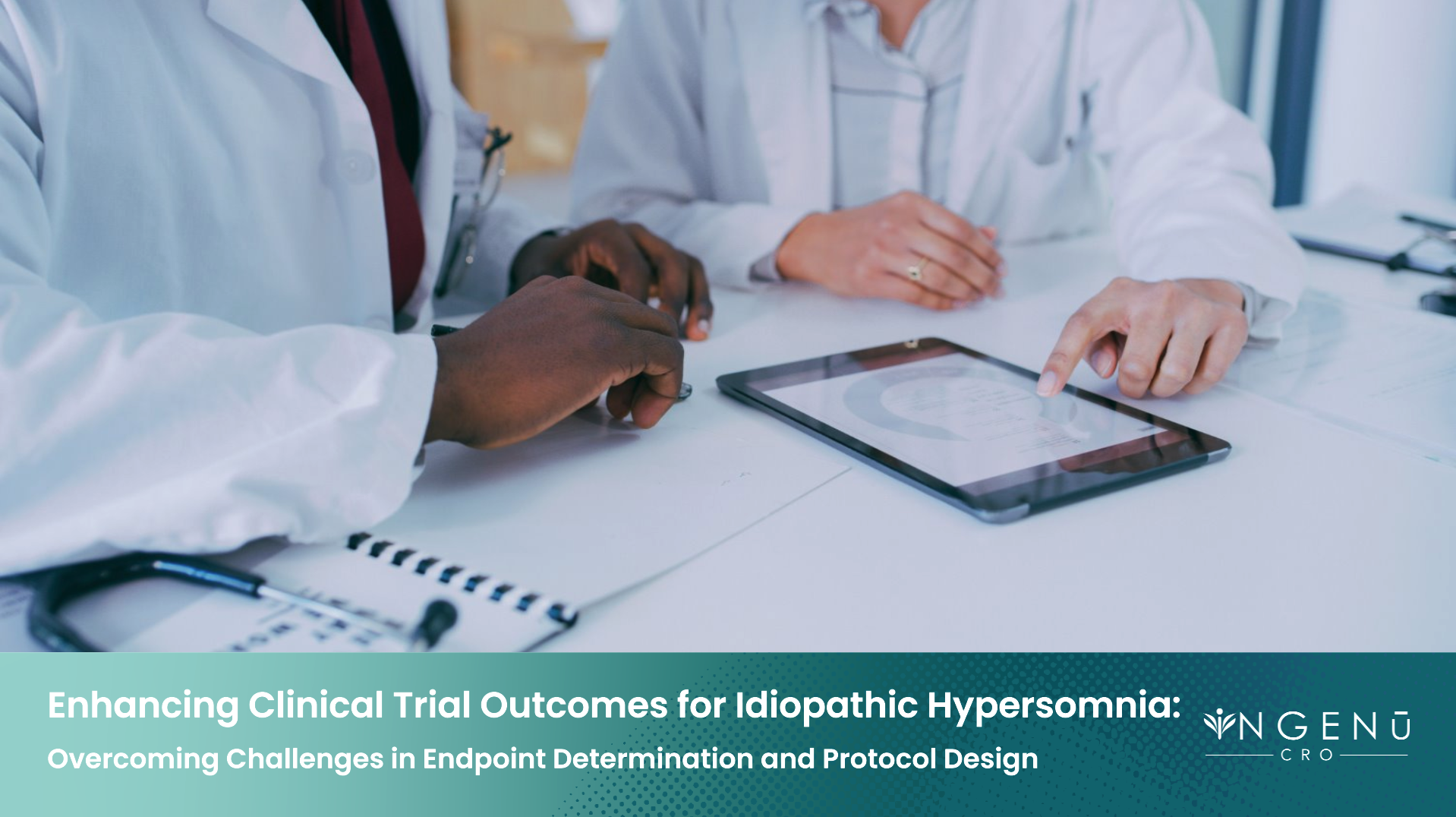Download our whitepaper,
"Enhancing Clinical Trial Outcomes for Idiopathic Hypersomnia: Overcoming Challenges in Endpoint Determination and Protocol Design"

What's Inside:
- Key FDA-Approved Pivotal Endpoints for Idiopathic Hypersomnia Clinical Trials.
- Optimizing Recruitment with Adaptive Trial Designs for Idiopathic Hypersomnia.
- Comprehensive Analysis of FDA-Approved Idiopathic Hypersomnia Drugs.
- How Diagnostic Criteria for Idiopathic Hypersomnia Have Evolved and Impact Research.
- Overcoming Common Pitfalls in Idiopathic Hypersomnia Clinical Trials.
- And additional insights to drive your trial's success.
Access your complimentary whitepaper today:
Idiopathic Hypersomnia
Idiopathic Hypersomnia (IH) is a chronic neurological sleep disorder primarily characterized by excessive daytime sleepiness (EDS) that is unrelated to nighttime sleep quality or duration.
This whitepaper provides a comprehensive overview of clinical trial considerations for IH, covering diagnosis criteria, epidemiology, and pivotal endpoints used to assess therapeutic efficacy. It explores key challenges in endpoint determination, reviews FDA-approved treatments, and examines drug candidates that failed to reach approval, highlighting common pitfalls in trial design and execution. Safety concerns and their implications for trial protocols are analyzed, along with strategies to enhance clinical trial frameworks, ultimately aiming to advance therapeutic options for IH patients.
iNGENū’s team of researchers and clinicians is dedicated to advancing bladder cancer research. Through innovative trial designs and a patient-centered approach, we work to accelerate the development of new treatments that could offer improved options and outcomes for those affected by bladder cancer.
3x
more common in women than men
40%
of individuals with IH report long, unrefreshing naps that don't alleviate tiredness
60%
of patients report worsening symptoms during periods of stress or illness
Our clinical team has over
120
years of combined clinical trial experience